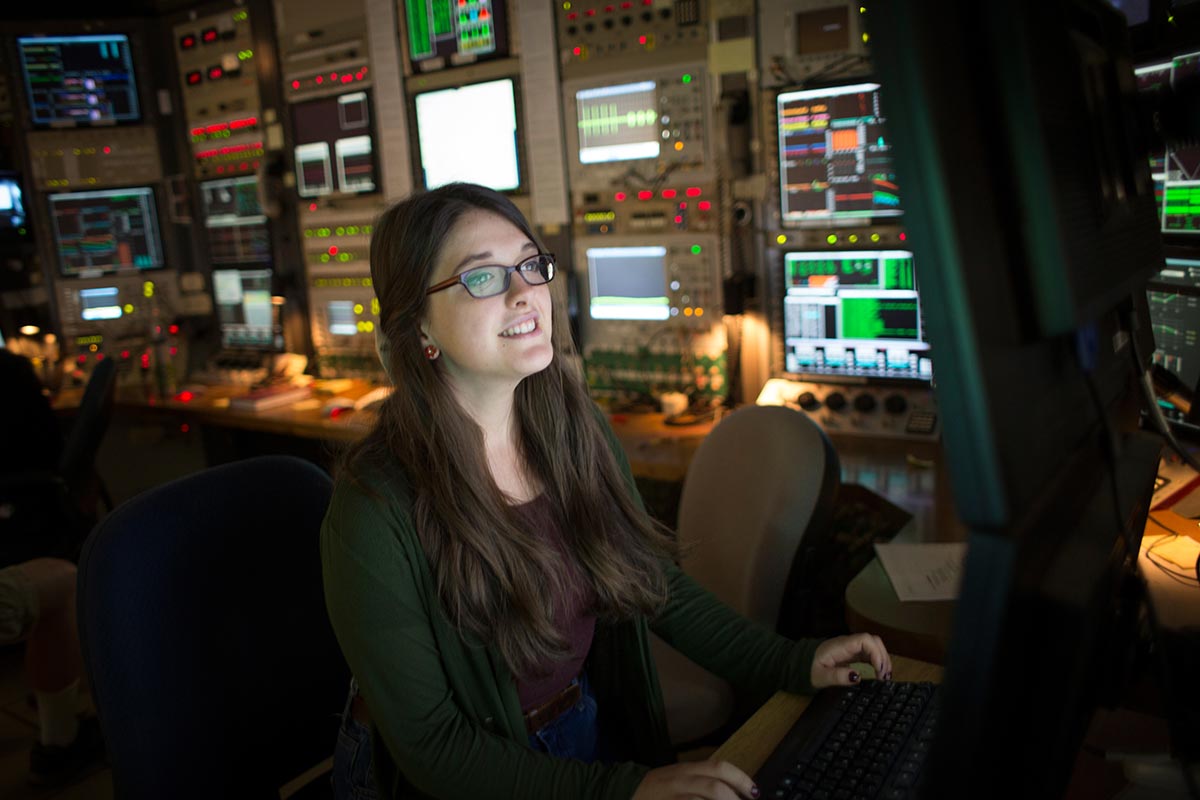Undergrads from across country visit for summer research
By Mary Jarvis

Earlier this summer, undergraduates from across the country gathered to hear from fellow physics students engaged in a summer of research at Cornell.
Among them was Naomi Gendler, a senior at Reed College in Portland, Oregon. In a few minutes, Gendler summarized her project, “Analysis of Methods to Excite Head-Tail Motion of Bunches within the Cornell Electron Storage Ring.” Her research could help improve the stability of electron beams in particle accelerators.
Gendler and the 16 other student presenters came from far and wide, including some community colleges, to spend several weeks at Cornell researching topics in accelerator physics or X-ray science. They are part of two programs: Research Experience for Undergraduates (REU), and Summer Research for Community College Students (SRCCS), both funded by the National Science Foundation.
Each summer, the Cornell Laboratory for Accelerator-Based Sciences and Education (CLASSE) welcomes a group of undergraduates and provides them with research experience by assigning them to work with Cornell mentors and professors. The REU program at CLASSE has been operating since 1998 and has provided research opportunities for more than 200 students, said Georg Hoffstaetter, professor of physics and the program’s principal investigator. Participation is quite competitive, he said, with about 20 times more applicants than can be accepted.
“The program provides high-quality research experiences for students across the country, which is of special importance for undergrads who would not easily find such opportunities at their home institutions,” Hoffstaetter said. “We are, therefore, glad to have about 50 percent participation from underrepresented groups.”
For many students, the experience becomes a decisive moment in their academic careers, said Devin Sonne, a Mohawk Valley Community College student transferring to the University of Rochester this fall. Because some colleges lack research opportunities, summer internship programs allow undergraduates to see whether they’d like to pursue research after graduation.
The program also allows students to research “real problems that need to be solved,” said postdoctoral research associate Jim Shanks, M.S. ’10, Ph.D. ’13, who is a mentor for the program and an REU alumnus.
Most typical science classes involve going over problems and methods that already have been solved. The REU and SRCCS programs, however, go beyond the basics, allowing students to be creative and solve real-world problems.
“What the program teaches you is that it’s always important to keep in mind that your own ideas are valid,” Gendler said.
For Gendler and other students, it’s the first real research that involves singular emphasis on their field. “I haven’t had the chance to focus on something this intensely before,” said Joe Burnett, a junior from the University of Texas, Dallas, whose project involves creating a laser for a particle accelerator.
The CLASSE REU and SRCCS programs are not the only NSF-funded summer-research programs offered in the College of Arts and Sciences. Programs also are available in the astronomy department and the Cornell Center for Materials Research, among others.
Mary Jarvis is an intern with the College of Arts and Sciences Communications office.
Media Contact
Get Cornell news delivered right to your inbox.
Subscribe